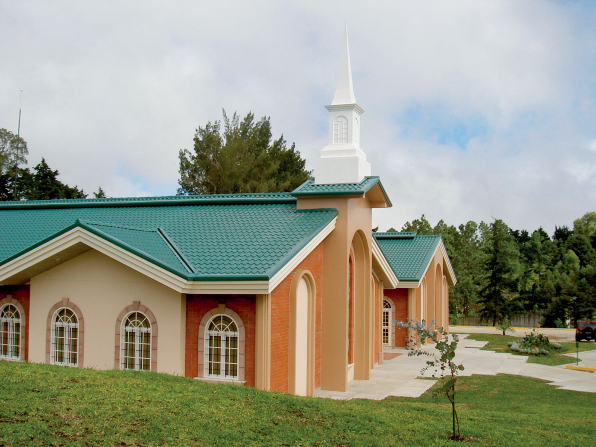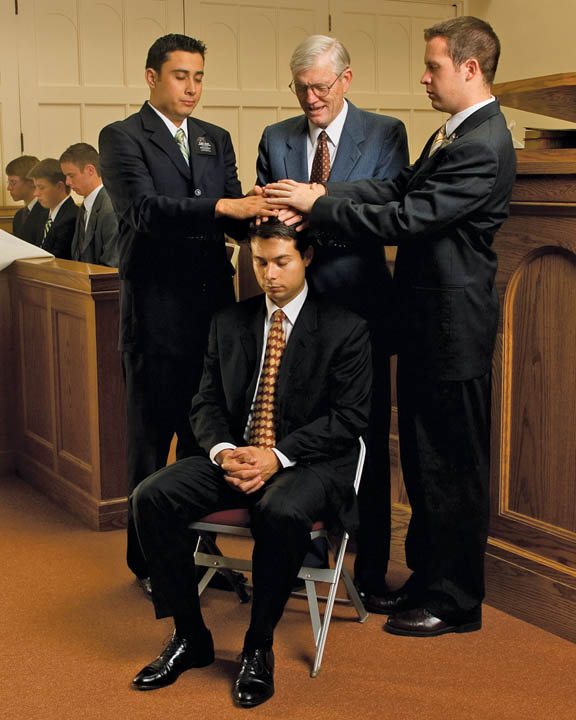The Church of Jesus Christ of Latter-day Saints (sometimes mistakenly called the Mormon Church) has made headlines for its $100 billion surplus in the bank from investing tithing money. A whistleblower and his brother wrote to the Internal Revenue Service accusing Ensign Peak Advisors, an auxiliary organization of the Church, of not paying taxes on this investment. Critics of the Church decry this as evidence of “corporate greed.” Faithful believers hail this as careful stewardship over the widow’s mite. Tithing is, in fact, a commandment from God, and the funds are used to build up His kingdom on earth.
Tithing is also a principle of faith. Elder Robert D. Hales taught,
Tithing has been established in these latter days as an essential law for members of the Lord’s restored Church. It is one of the basic ways we witness our faith in Him and our obedience to His laws and commandments.
Latter-day Saints pay tithing as a sign of their faith in God. Most of us, at one point or another, feel like the widow paying her last mite in tithing. But perhaps that is the point. Elder Bruce R. McConkie said,
When it costs us but little to give, the treasure laid up in heaven is a small one. The widow’s mite, given in sacrifice, weighs more heavily in the eternal scales than the bulging granaries of the rich man.
In paying our tithing—especially in lean times—we strengthen our faith through our sacrifice. Careful management of tithing funds is evidence that the leaders of The Church of Jesus Christ understand this. Let me explain.
The Law of Tithing
First, what is tithing? A tithe is one-tenth of a person’s annual increase, or income. But it’s not a modern construct. In ancient times and the early days of the Church of Jesus Christ, tithing was not always paid in cash. It was often paid commodities. The scriptures teach,
And as soon as the commandment came abroad, the children of Israel brought in abundance the firstfruits of corn, wine, and oil, and honey, and of all the increase of the field; and the tithe of all things brought they in abundantly (2 Chronicles 31:5).
The Lord revealed the law of tithing and the purpose thereof for the modern Church of Jesus Christ in 1838. Modern scriptures teach,
Verily, thus saith the Lord, I require all their surplus property to be put into the hands of the bishop of my church in Zion,
For the building of mine house, and for the laying of the foundation of Zion and for the priesthood, and for the debts of the Presidency of my Church.
And this shall be the beginning of the tithing of my people.
And after that, those who have thus been tithed shall pay one-tenth of all their interest annually; and this shall be a standing law unto them forever, for my holy priesthood, saith the Lord (Doctrine & Covenants 119:1-4).
The Lord feels very strongly about this law. The ancient prophet Malachi wrote,
Will a man rob God? Yet ye have robbed me. But ye say, Wherein have we robbed thee? In tithes and offerings.
Ye are cursed with a curse: for ye have robbed me, even this whole nation (Malachi 3:8-9).
The Collection of Tithes
Every faithful member of The Church of Jesus Christ of Latter-day Saints who has an increase in income pays tithing. This includes the leadership. Latter-day Saints pay tithing to the bishop, or lay leader of the ward (which is the local congregation). While members can now pay their tithing online through the Church’s website, funds are still sent directly to the ward. Ward clerks help to count the funds brought in. Elder Hales explained,
According to revelation, bishops are ordained to “keep the Lord’s storehouse; to receive the funds of the church.” (See Doctrine & Covenants 72:10.) Both bishops and clerks are expected to be full-tithe payers who have learned to live prudently within their means. Within hours of receiving tithing funds from members of their wards and branches, these local leaders transmit the funds directly to the headquarters of the Church.
Once at Church headquarters, the use of funds is directed based on sound financial principles. Elder David A. Bednar taught,
In the financial operations of the Church, two basic and fixed principles are observed. First, the Church lives within its means and does not spend more than it receives. Second, a portion of the annual income is set aside as a reserve for contingencies and unanticipated needs. For decades the Church has taught its membership the principle of setting aside additional food, fuel, and money to take care of emergencies that might arise. The Church as an institution simply follows the same principles that are taught repeatedly to the members.
The Use of Tithing Funds
Tithing funds are used to establish and maintain the kingdom of God on the earth. So what does that look like? President Gordon B. Hinckley said,
There has been laid upon the Church a tremendous responsibility. Tithing is the source of income for the Church to carry forward its mandated activities.
And the use of tithing funds is directed by the Lord. President Dallin H. Oaks explained,
The Lord has directed by revelation that the expenditure of his tithes will be directed by his servants, the First Presidency, the Quorum of the Twelve, and the Presiding Bishopric (see Doctrine & Covenants 120). Those funds are spent to build and maintain temples and houses of worship, to conduct our worldwide missionary work, to translate and publish scriptures, to provide resources to redeem the dead, to fund religious education, and to support other Church purposes selected by the designated servants of the Lord.
Although the headquarters of The Church of Jesus Christ are in Salt Lake City, the Church operates throughout the world. The scriptures are translated and published into 97 languages in their entirety and portions have been translated into another 20, there are meetinghouses and temples benefitting members in 160 countries, and tithing funds are the source of funding. Each meetinghouse and temple must be heated or cooled and properly maintained. Sometimes they need repairs. All of this comes out of tithing funds. The Church of Jesus Christ no longer goes into debt to build these structures. Rather, everything is paid for in cash.
The Promises of Tithing
We can’t talk about the principles of tithing without discussing the associated promises. The ancient prophet Malachi taught,
Bring ye all the tithes into the storehouse, that there may be meat in mine house, and prove me now herewith, saith the Lord of hosts, if I will not open you the windows of heaven, and pour you out a blessing, that there shall not be room enough to receive it.
And I will rebuke the devourer for your sakes, and he shall not destroy the fruits of your ground; neither shall your vine cast her fruit before the time in the field, saith the Lord of hosts (Malachi 3: 10-11).
Speaking of paying tithing, President Hinckley said,
I am satisfied that he will bless all who walk in obedience to this commandment.
Now, do not get me wrong. I am not here to say that if you pay an honest tithing you will realize your dream of a fine house, a Rolls Royce, and a condominium in Hawaii. The Lord will open the windows of heaven according to our need, and not according to our greed. If we are paying tithing to get rich, we are doing it for the wrong reason. … The blessing to the giver is an ancillary return, and that blessing may not be always in the form of financial or material benefit.
Tithing is, indeed, a measure of faith. President Hinckley taught,
While tithing is paid with money, more importantly it is paid with faith. I have never met an individual who paid an honest tithe who complained about it. Rather, he put his trust in the Lord, and the Lord never failed him.
The Blessings of Tithing
The blessings of tithing are not limited to financial aspects of our lives. As President Hinckley said, if we are paying our tithing hoping to get rich, then we’re doing it for the wrong reason. And if we’re paying tithing for the wrong reasons and looking for blessings that aren’t there, then we will probably miss the blessings that are there. President Hinckley said,
There are many ways in which the Lord can bless us beyond the riches of the world. There is the great boon of health. The Lord has promised that he will rebuke the devourer for our sakes. Malachi speaks of the fruits of our ground. May not that rebuke of the devourer apply to various of our personal efforts and concerns?
There is the great blessing of wisdom, of knowledge, even hidden treasures of knowledge. We are promised that ours shall be a delightsome land if we will walk in obedience to this law. I can interpret the word land as people, that those who walk in obedience shall be a delightsome people. What a marvelous condition to be a delightsome people whom others would describe as blessed!
But these are not all. Elder Neil L. Andersen explained,
… Some of the diverse blessings we obtain as we are obedient to this commandment are significant but subtle. Such blessings can be discerned only if we are both spiritually attentive and observant (see 1 Corinthians 2:14).
The imagery of the “windows” of heaven used by Malachi is most instructive. Windows allow natural light to enter into a building. In like manner, spiritual illumination and perspective are poured out through the windows of heaven and into our lives as we honor the law of tithing.
We can see the blessings of tithing as we look for them.
Tithing vs. Food
Some people feel that you have to have enough money to pay your tithing. My husband and I have always felt that we can’t afford to not pay tithing. When our first son was born, I quit working to stay home. That pretty much cut our income in half. And I was worried. But we always paid our tithing, and we have always had what we needed. We attribute that directly to blessings from paying tithing.
Even—and perhaps especially—in times of economic crisis, paying tithing is important. But some say The Church of Jesus Christ forces the poor to pay tithing rather than buying basic necessities such as food. But in this, they miss the whole point of tithing. Elder Lynn G. Robbins taught,
The Lord often teaches using extreme circumstances to illustrate a principle. The story of the widow of Zarephath is an example of extreme poverty used to teach the doctrine that mercy cannot rob sacrifice any more than it can rob justice. In fact, the truer measure of sacrifice isn’t so much what one gives to sacrifice as what one sacrifices to give (see Mark 12:43). Faith isn’t tested so much when the cupboard is full as when it is bare. In these defining moments, the crisis doesn’t create one’s character—it reveals it. The crisis is the test.
The Widow of Zarephath
In the scriptures, the prophet Elijah comes to a poor, starving widow and asks her to feed him during a famine. (See 1 Kings 17:13-16.) When she says that she has a little oil and meal for her and her son—and that they are preparing one last, small meal before they die of starvation—Elijah asks her to feed him first. Elder Robbins continued,
Elijah understood the doctrine that blessings come after the trial of our faith (see Ether 12:6). He wasn’t being selfish. As the Lord’s servant, Elijah was there to give, not to take.
The widow and her son survived the famine because they showed faith. The same is true of us. If, after paying tithing, we don’t have sufficient funds for food or housing, the Church welfare system will step in and help. It is a principle lived and sacrifice made and honored. And living this principle will bless us long after the crisis has passed.
Preparation for the Second Coming

Members of The Church of Jesus Christ of Latter-day Saints in yellow Helping Hands shirts clean up after a tornado in Tennessee.
Latter-day Saints believe that the world will continue to be in turmoil as the time draws near for the Second Coming of the Savior. And for many years, prophets and apostles have taught the importance of preparing for this by getting out of debt and stockpiling food and other supplies. What used to be called food storage is now called self reliance. It is a different name but similar concept. While many Church members are following these teachings, not all are. Many are in various stages of attaining their goals of getting out of debt and gathering what they need. And some will be caught unaware.
Some, no matter how hard they work to prepare, will fall on hard times. And the plagues, wars and rumors of wars will stretch thin many people across the globe. In coming days, it is entirely possible that the once seemingly ridiculously large $100 billion in savings will be stretched as The Church of Jesus Christ helps people around the world. Not just members of the Church, but anyone who is in need.
Tithing and the Widow’s Mite
Despite the blessings that many faithful Latter-day Saints have received from paying tithing, some critics have wondered why The Church of Jesus Christ needs to keep billions of dollars in reserves. Wouldn’t it be better, they reason, to spend the money to help the homeless or feed the poor or some other charitable work? And maybe just keep a few million in reserves. Well, put frankly, no. This is short-sighted and fiscally irresponsible. Spending money just because it’s there does not honor the sacrifice of the widow’s mite, which is in reference to a widow paying all that she has in faith. And she has faith that those with stewardship over her contribution will respect her consecrated offering—which is consecrated, or made holy, by her sacrifice. The same is true of all tithing monies.
My grandmother was a widow for nearly 20 years who was very careful with her money. But she always paid her tithing. Not only was it important to her to pay her tithing, it was also important to her to declare herself a full tithe payer before the Lord. Latter-day Saints do this at the end of the year in personal or family tithing settlement meetings with the bishop. In 2019, she passed away in the early morning hours of the day she was supposed to attend tithing settlement. Knowing how important this meeting was to my grandmother, my mother went for my grandmother. President Hinckley said,
… Long observation has shown that the faithful and honest payment of tithing is an indicator of faithfulness in other matters.
This is the legacy of faith that comes from a lifetime of sacrifice. And the faith that will see us through the trials and challenges of life. The Church honors that faith with careful management of tithing funds.









